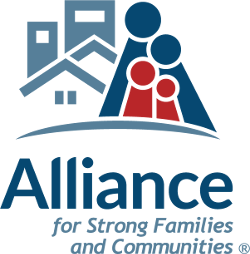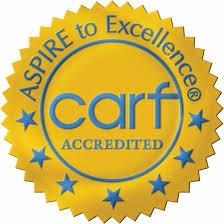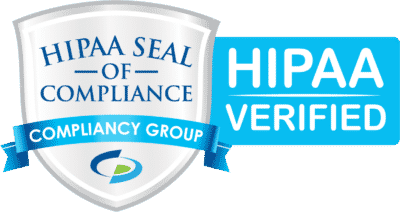Introduction: Why More Families Are Choosing to Foster
In Virginia, more and more families are making the choice to open their homes to children in foster care. This isn’t surprising when you look at the numbers: as of 2025, more than 5,500 children are in Virginia’s foster care system. More than half of these children live with foster families who are not relatives, while others do stay with relatives or in groups. Every child’s story is different, but they all share a need for stability, safety, and love.
Families are saying “yes” to fostering for many reasons. Some feel called by faith or community values, others want to share their love and stability with children in need, and some are inspired by personal experiences—maybe they knew someone in foster care or were foster children themselves. At the same time, agencies across Virginia are working hard to recruit more foster parents because the demand is greater than the supply.
Here are a few reasons more families in Virginia are stepping forward:
- The need is clear and getting bigger: Thousands of children in Virginia enter care every year, and there simply aren’t enough foster families.
- Community responsibility: Many families see fostering as a way to give back to their community in a deeply personal way.
- Support from the state: Virginia provides training, financial assistance, and ongoing resources, making it easier for families to succeed.
- Opportunities for growth: Fostering challenges adults to be patient, resilient, and empathetic.
- Love lives forever: Even if a placement lasts only a few months, the love and stability provided can shape a child’s future forever.
The bottom line is simple: fostering is not only about providing a roof and meals. It’s about stepping in at a critical moment in a child’s life and offering a safe place when they need it most.
What Are the Benefits of Fostering a Child?
When you ask that question, the answers are huge. For the child, it’s a chance to feel safe, learn trust, and begin to heal from trauma. For the foster family, it’s an opportunity to make a meaningful difference in someone’s life while learning and growing themselves.
Children in foster care often face big challenges—separation from family, frequent moves, and uncertainty about their future. Even small moments of stability, like consistent mealtimes, routines, and affection, can help them regain a sense of normalcy. Foster parents play a key role in that recovery.
Benefits of fostering for children include:
- Stability during crisis: Consistent routines and caring adults help children rebuild a sense of safety.
- Improved outcomes: Research shows that children placed in loving foster homes often perform better academically and emotionally than those who remain in unstable environments.
- Stronger community ties: Foster children who are supported by local families feel more connected to their communities.
- Lifelong support networks: Many foster parents remain mentors or family figures for children long after the official placement ends.
Fostering changes a child’s life. A stable, caring home doesn’t erase past trauma, but it gives a child the tools to recover and the hope to believe in a brighter future.
Top Benefits for Foster Parents
When people think of foster care, they often picture the benefits for children—but there are also profound rewards for the adults who take on this role. The foster parents’ benefits go far beyond what many think.
Opening your home to a child in need challenges you to grow in ways you never imagined. You learn new skills, be more empathetic, and often discover strengths you didn’t know you had. It’s not always easy, but growth is inevitable.
One of the biggest benefits for foster parents is the personal growth that comes from learning patience, adaptability, and resilience. Caring for children who have faced difficult experiences requires compassion and grace, and these qualities often grow stronger with time. Families also discover that fostering improves their own bonds. Couples frequently find themselves working more closely as a team, siblings develop empathy for others, and extended family members often step in to provide encouragement and support.
While financial reasons are never the primary motivation, Virginia does provide monthly stipends to help cover the essentials—things like food, clothing, and school supplies. This support makes sure that caring for a foster child doesn’t create a financial burden.
In addition, foster parents gain access to valuable training in areas such as trauma-informed care, child development, and communication. These skills are not only useful in the context of fostering but often carry over into everyday family life and even professional settings.
Perhaps the most meaningful benefit, however, is the emotional journey. Many foster parents describe the experience as one of the most rewarding parts of their lives, pointing to the sense of purpose and joy that comes from making a lasting difference for a child in need.

Personal and Emotional Rewards of Foster Parenting
For many families, the strongest reasons to become a foster parent are the emotional ones. These rewards may not come with financial value, but they leave lasting impressions.
It can be something as simple as watching a withdrawn child begin to smile again, or as big as helping a teenager graduate high school against the odds. Each achievement feels extraordinary when you know the journey of that child.
Foster parents often find joy in:
- Seeing transformation: The shy child who finally laughs, or the anxious teen who begins to trust—these are moments that stay forever with you.
- Providing safety and love: Being the first safe adult in a child’s life is a gift both ways.
- Redefining family: Foster care expands your understanding of family. Bonds often continue even after the official placement ends.
- Modeling values: Many foster parents take pride in teaching consistency, kindness, and resilience—values that children carry with them for life.
The emotional journey is not without heartbreak, especially when children move on. But for most families, the joy of knowing they made a difference beats the sadness by a mile.
Practical Support and Resources Available to Foster Families
One of the biggest fears potential foster parents have is being left without support. In Virginia, this isn’t the case. The system is designed to equip families with tools and resources so they can succeed.
Foster parents in Virginia receive monthly reimbursements that help cover a child’s day-to-day needs, ensuring that families are not left carrying the full financial burden. Children in foster care are also mostly covered by Medicaid, which means they have access to doctors, therapists, and specialists without families needing to worry about medical costs. Before welcoming a child, parents take part in pre-service training, and after that, they continue to receive ongoing education that helps them build skills and remain supported during their journey.

In addition to training and financial help, foster families benefit from direct guidance from caseworkers. Virginia also recognizes that fostering can be difficult, so other care options are available, allowing parents to take short breaks when needed. Beyond formal support, many communities across the state offer mentoring programs, local support groups, and family activities that give foster parents a network of people who understand their experiences.
These resources remind families that fostering is not an individual effort. Instead, it is a true partnership between parents, children, agencies, and communities—all working together to create safe, stable, and loving environments for children in need.
Foster Family Advantages and Disadvantages
When deciding whether to foster, many families ask: What are the foster family advantages and disadvantages? The answer isn’t black or white. Foster care is a journey that mixes incredible highs with real challenges, and understanding both sides helps families prepare for what’s coming.
Advantages of Fostering a Child in Virginia
- Making a lasting impact: Few experiences compare to knowing you’ve changed the course of a child’s life. Providing love and stability during a difficult time gives children tools they carry into adulthood.
- Support and training: Virginia requires foster parents to go through training before a placement begins, and agencies continue to provide support. Families don’t have to figure everything out alone.
- Community connection: Foster parents often find themselves part of a larger network of families, social workers, and organizations that care deeply about children. These connections can grow into friendships and support systems.
- Opportunities for adoption: While reuniting the children with their families is the primary goal, some cannot return home. In those cases, foster families are often the first considered for adoption, giving children permanent homes.
- Personal and family growth: Parents and children in fostering households often learn resilience, patience, and empathy. Families grow stronger together as they navigate challenges and celebrate successes.
Disadvantages and Challenges
- Emotional goodbyes: Perhaps the hardest part is saying goodbye. Many children return to their birth families after months or years in care. While reunification is often the best outcome, it can be heartbreaking for foster parents who’ve grown attached.
- Behavioral and emotional struggles: Children in foster care often carry trauma. This can show up as anxiety, defiance, or difficulty trusting adults. Foster parents need patience, consistency, and support to work through these challenges.
- Unpredictability: The foster system involves court dates, caseworker visits, and shifting timelines. Families must be flexible, as placements can last weeks or years, sometimes changing suddenly.
- Impact on family life: Bringing in a foster child affects everyone in the home. Biological children may need extra reassurance, couples must work together as a team, and extended family members may need to adjust to the new dynamic.
- Financial considerations: While Virginia provides stipends and resources, fostering isn’t a “paid job.” The reimbursement helps cover basic needs, but parents often spend extra time, money, and energy beyond what the state provides.
For many families, the advantages beat the disadvantages by a mile—but it’s important to walk into fostering with open eyes. Those who thrive in this role are often the ones who embrace the challenges as part of the journey and lean on the resources and community around them.
FAQs: Understanding the Benefits and Challenges of Fostering
Yes. Foster parents receive monthly reimbursements to cover the child’s daily needs. The exact amount depends on the child’s age and circumstances.
The most significant benefits are emotional—knowing you provided safety, love, and stability for a child in need.
No. Some last only weeks, while others continue for months or years. In Virginia, the average stay is about 11 months if the goal is reunification with family, and closer to 33 months if adoption is the plan.
Virginia requires pre-service training before approval, plus ongoing education once fostering begins. These cover child development, trauma, and behavior management.
This is often the hardest part of fostering. Support groups, counseling, and community connections help many parents cope.
Yes. While reunification with the child’s biological family is the priority, many foster parents go on to adopt if reunification isn’t possible.
In 2025, there are just over 5,500 children in Virginia’s foster care system, and about one in five age out without finding a permanent family.
Final Thoughts
Becoming a foster parent is one of the most meaningful choices an individual or family can make. It is not easy. It requires patience, flexibility, and a willingness to open your home and heart knowing you may one day have to say goodbye. But for children in Virginia’s foster care system—more than 5,500 of them at any given time—the presence of caring adults can mean the difference between despair and hope.
The benefits of fostering a child ripple far beyond one household. They extend to schools, neighborhoods, and communities as children who are supported in loving homes grow into stronger, more resilient adults. Each success story—a child who graduates, a teen who finds stability, a family that welcomes a child permanently—is a reminder that fostering changes lives on both sides.
At the same time, it’s essential to acknowledge the realities. Foster parents will face challenges that test them emotionally and practically. There may be late-night calls from caseworkers, difficult conversations with children struggling to trust, and moments of grief when reunification happens. Yet alongside these challenges come moments of deep joy: the first time a child calls you “Mom” or “Dad,” the pride of watching them succeed in school, the comfort of knowing you were there when they needed someone most.
If you’ve ever thought about fostering in Virginia, consider taking the next step. You can:
- Attend an informational meeting hosted by your local Department of Social Services.
- Talk to foster parents in your community to hear their real experiences.
- Reach out to organizations like Virginia’s Foster Care Recruitment and Retention Team, which connects families with resources and training.
Even if you decide fostering isn’t right for you now, there are many ways to support the system—from volunteering with local agencies to mentoring older youth who are aging out of care.
The truth is simple: fostering is hard, but it is worth it. By choosing to foster, you don’t just give a child a safe place to sleep—you give them a chance at healing, belonging, and hope. And in the process, you may find that the greatest change happens not only in the child’s life, but in your own.














